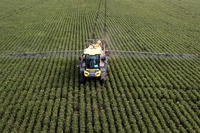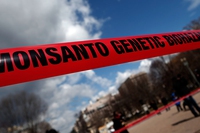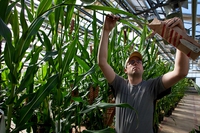
Luxembourg becomes the first country in Europe to ban glyphosate
Luxembourg announced a ban on all glyphosate-based products by the end of 2020.
Luxembourg announced a ban on all glyphosate-based products by the end of 2020.
A California jury has ordered Monsanto to pay 289 million dollars in damages to a gardener who contracted cancer after using glyphosate-based herbicides for over 30 years.
Monsanto is now property of Bayer, and its name has ceased to exist. Agriculture is in the hands of a few large corporations now more than ever, with dire consequences for people and the environment.
The only responsible decision the European Union can make is to stop the Bayer-Monsanto merger. However, the latest updates from the European Commission don’t seem promising. The deadline for the verdict of the merger between Monsanto and Bayer (which amounts to over 63 billion dollars) has been extended to the 5th April 2018. The European Competition
Corporations are putting our lives and our environment at risk through a growing and improper influence over institutions, whose responsibility should be, instead, protecting people and the planet. The visible consequences have made it imperative to expose their devious tactics and their steadfast and corrupt lobbying, recently revealed in the Poison Papers (a compilation of over
Monsanto has said yes. After 5 months of negotiations and hesitations, the US company has accepted Bayer’s offer of 66 billion dollars, debt included. So, the value of each share is now 128 dollars, up from Bayer’s previous offer of 127.50 dollars a share. In addition, the German pharmaceutical company has pledged to pay a
“Bayer recently met with executives of Monsanto to privately discuss a negotiated acquisition”. Bayer’s statement has upset an entire industry, if not the entire European continent. Europe is faced with particular pressures as two core issues could determine what we’re going to cultivate and eat in the near future: the renewal of the license of the





